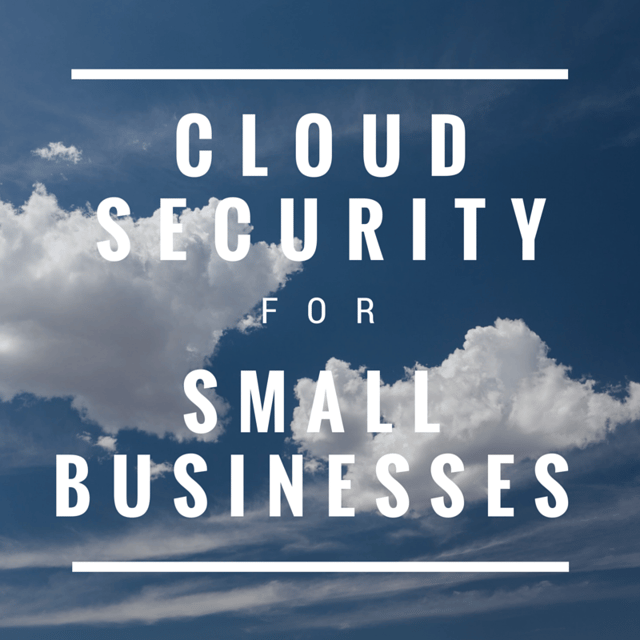While the bulk of data security breaches affect large corporations, hackers can target small and medium-sized enterprises (SMEs), too. As a result, small businesses — often deemed an attractive target by cybercriminals because these companies lack the infrastructure of multi-million dollar conglomerates — are investing heavily in cloud security. However, not all cloud computing vendors are the same. If you want to incorporate cloud technology into your small business, there are a few things you need to know.
Know What Data Encryption Services Are Available
Research shows that many SMEs have concerns about data loss, but few have a proper disaster recovery program, making them vulnerable to security threats. Data encryption — where software renders data unreadable — can prevent non-authorized viewers from seeing your company's most sensitive and valuable information. In the result of a data breach, hackers can't scramble data without an encryption key (a secret code stored on a separate server), making encryption an attractive option for an SME like yours, especially if you possess data that contains personal identifiers or financial information.
Cloud vendors should make it clear what data encryption services are available to you. You will need to know how your encryption keys will be managed and what will happen to your data after a security breach. A recent study showed that 82 percent of cloud providers encrypted data as it moved between a user and the cloud via SSL or TLS; however, only 9 percent of providers encrypted data once it was stored in the cloud, exposing valuable information to attackers. Looking for peace of mind? Research different cloud vendors and find a reputable company that encrypts your data properly.
 Know Who Has Access to Your Data
Know Who Has Access to Your Data
Once you know how your data is going to be encrypted, find out who can access it. Some vendors might control access to your data, which prevents unauthorized viewers from seeing your information. Others might require multi-level authentication and other security measures before a user can view data. If you have extremely sensitive information, choose a vendor that carries out background checks on your employees to discover potential identity thieves.
When searching for a vendor, find out about the capabilities of its infrastructure and software. The best cloud tools let you monitor user interactions with cloud infrastructure so you can determine who is trying to access your information, and when. You should also know who is likely to be responsible for keeping your information secure, and whether the vendors can still access your data if you leave them in the future. These measures minimize the risk of your data being exposed to cybercriminals.
When giving a vendor access to your data, it is imperative that you carry out a regular risk assessment and have an incident response plan of your own. Over 40 percent of IT professionals closely assess inherent risks when storing personal data in the cloud, and over 35 percent assess the impact of cloud computing on their privacy obligations and commitments. Just because a vendor promises to manage the safety of your data, it doesn't mean you shouldn't carry out internal risk assessments, too.
Find Out About Security Audit Processes
Different vendors have different security audit processes. Vulnerability scanning, for example, is carried out to identify IP addresses that have vulnerabilities. A penetration test, which determines whether infrastructure is susceptible to a cyberattack, might be used to ensure your data is safe, too, Find out how frequently a vendor carries out security auditing and which processes will benefit your small business the most. A good vendor will use firewalls and antivirus software to determine security threats and have an effective solution recovery process and backup procedures in the event of a data breach.
Cloud vendor management should be a huge priority for your company. Monitor your vendor on an ongoing basis by redefining your service requirements every six months and analyze any reports given to you. Cybercrime costs businesses, on average, $15 million every year, so it makes sense to monitor your vendor and ascertain whether it is providing you with a good level of service. Some vendors offer analytics software, which will provide your company with deep insights into how your data is being managed. Analytics can also help you determine which IT security solutions are working best for you.
The SME cloud computing and services market is expected to jump from $43 billion in 2015 to $55 billion this year, encouraging more cloud vendors to target this lucrative market. Choosing the right vendor for your business is crucial if you have sensitive data that you want to store in the cloud. Before you choose a service, however, discover what data encryption services are available to your company, know who will have access to your data and find out about security audit processes. This way, you can safeguard valuable information from a cyberattack.
Contact us now to learn more about how your small business can find the perfect cloud vendor. Also, check out our free guide on how to keep your company secure below.



